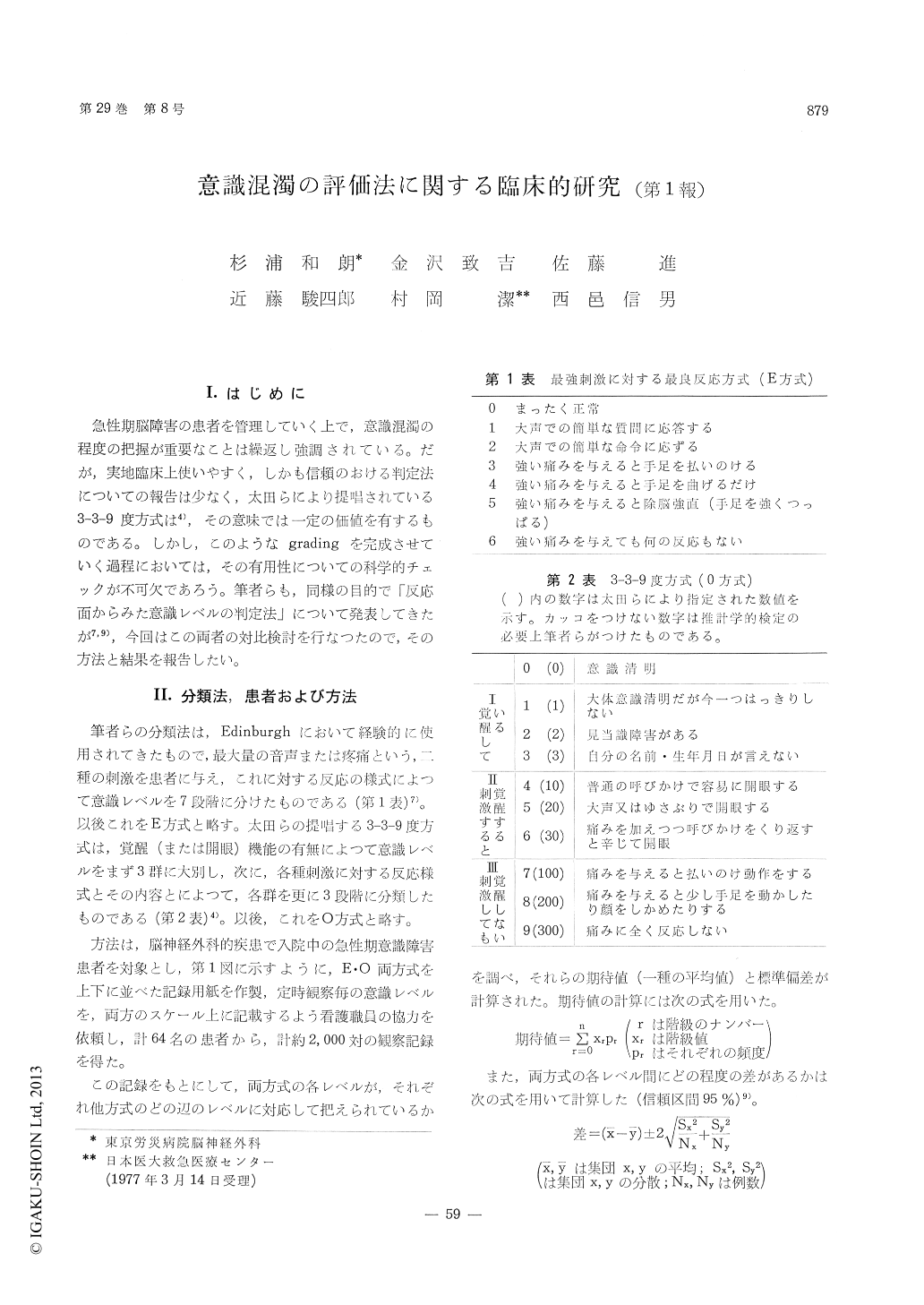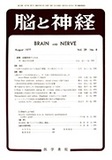Japanese
English
- 有料閲覧
- Abstract 文献概要
- 1ページ目 Look Inside
I.はじめに
急性期脳障害の患者を管理していく上で,意識混濁の程度の把握が重要なことは繰返し強調されている。だが,実地臨床上使いやすく,しかも信頼のおける判定法についての報告は少なく,太田らにより提唱されている3-3−9度方式は4),その意味では一定の価値を有するものである。しかし,このようなgradingを完成させていく過程においては,その有用性についての科学的チェックが不可欠であろう。筆者らも,同様の目的で「反応面からみた意識レベルの判定法」について発表してきたが7,9),今回はこの両者の対比検討を行なつたので,その方法と結果を報告したい。
In order to obtain a clinically useful and reliable scale in assessing depressed state of consciousness, comparative studies have been carried out between Ohta's "3-3-9 formula" and our "best response to maximum stimuli scale". The latter consists of:0=alert, 1=answering simple questions, 2=obeying simple commands, 3=localising movements of limbs on painful stimuli, 4=flexion of limbs on pain, 5=decerebrate to pain, and 6=no response to pain.
Both scales were printed up and down in a chart, and nursing staffs were asked to check and describe the state of consciousness on both scales at regular observations of acutely comatose patients admitted in the department of neurosurgery. Appraising the amount of variability among different observers, the following conclusions have been drawn:
No differences have been found among grades 20, 30 and 100 in 3-3-9 formula (p=0.01); care should be taken in placing these grades cardinally with same distances (weights) on a single scale.
3-3-9 formula were noted to possess tendency to misjudge physiological sleep as a "pathological" change in state of consciousness, which could be avoided if one adopts the maximum stimuli form.
The best response to maximum stimuli system produced higher degree of consistancy among differ-ent observers and appeared to be more reliable in assessing clinical course of acutely brain injured in daily practice.

Copyright © 1977, Igaku-Shoin Ltd. All rights reserved.


